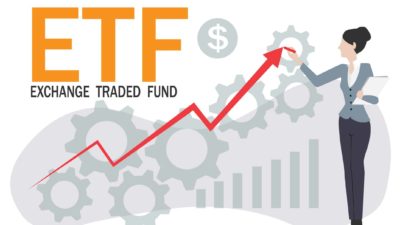ASX ETFs offer diversification in one trade.
Many investors use these funds to gain exposure to international markets like the S&P 500 Index (SP: .INX) or NASDAQ-100 Index (NASDAQ: NDX).
However when you choose funds that track these markets, you might be faced with the decision of hedged or unhedged funds.
That's because these funds are tracking companies based in other countries.
What is currency hedging?
Currency-hedged ETFs are exchange-traded funds that are designed to reduce (or eliminate) the impact of exchange rate fluctuations on investment returns when investing in foreign assets.
When you invest in international stocks or bonds, you're exposed not just to the performance of those assets, but also to changes in the foreign currency against your home currency.
This year, the Australian dollar has been volatile compared to the USD. The value of $1 AUD fell as low as 60 US cents in April, and has slowly climbed back to around 65 US cents at the time of writing.
Let's look at how this has impacted ETFs that track the S&P 500 Index (SP: .INX).
Impact on non-hedged ASX ETFs
If you own a non-hedged ASX ETF that tracks a US index like iShares S&P 500 ETF (ASX: IVV), your returns are affected by:
- The performance of the S&P 500 (in USD)
- The AUD/USD exchange rate
When AUD is weak like it was in April (around 60¢), each USD of S&P 500 return converts into more AUD. This means your returns in AUD increase and you benefit from currency depreciation.
However, when the AUD strengthens, each USD is worth fewer AUD. This means your AUD returns fall, even if the S&P 500 rises in USD.
Hedged ETFs
Now lets look at a hedged fund, like iShares S&P 500 AUD Hedged ETF (ASX: IHVV).
This ETF hedges currency exposure using derivatives, aiming to keep returns in AUD terms only reflecting the S&P 500.
Whether the AUD goes up or down doesn't materially affect returns.
You're only exposed to the S&P 500's actual performance, not currency fluctuations.
Are hedged ASX ETFs better?
Unfortunately, it's not as simple as which option is better or worse. It largely depends on your risk appetite and personal preference.
Over the long term, currency fluctuations will likely balance out.
However, some investors may prefer to avoid these rises and falls, particularly if you invest in funds that are exposed to more volatile economies.
What are some common hedged funds?
If you are looking to invest in currency hedged ETFs, here are some to consider:
- Betashares Nasdaq 100 ETF – Currency Hedged (ASX: HNDQ)
- Vanguard MSCI Index International Shares (Hedged) ETF (ASX: VGAD)
- Betashares Global Quality Leaders ETF – Currency Hedged (ASX: HQLT)
Some more thematic options include:









